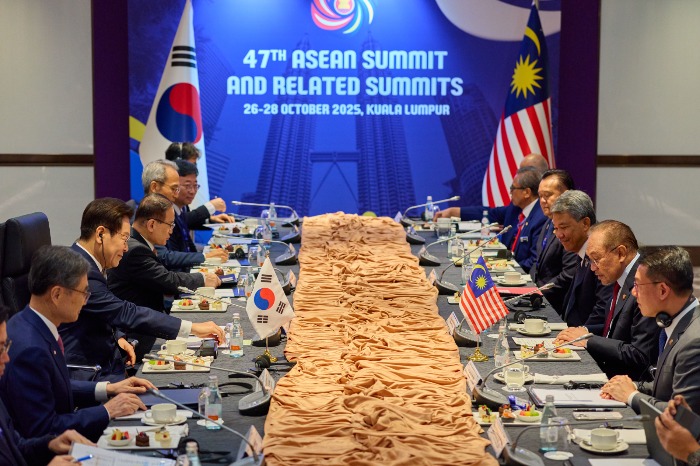URGENT UPDATE: South Korea and Malaysia have just finalized a crucial free trade agreement that promises to transform trade dynamics between the two nations. Signed during the 47th ASEAN summit in Kuala Lumpur on October 26, 2025, this landmark deal aims to significantly boost exports of South Korean automobiles and steel products, enhancing Malaysia’s position as Seoul’s third-largest trading partner in Southeast Asia.
This agreement, concluded after nearly six years of negotiations, underscores South Korea’s strategic pivot to deepen economic ties with Southeast Asia as it seeks to reduce dependence on traditional markets like the US and China. At the summit, South Korean President Lee Jae Myung announced a bold goal to elevate annual trade with ASEAN countries to $300 billion, a substantial increase from last year’s $192.8 billion.
The new pact dismantles existing trade barriers that have historically shielded key sectors in Malaysia. While both countries have enjoyed relatively free trade under prior agreements, including the 2007 ASEAN-Korea FTA and the 2019 Regional Comprehensive Economic Partnership, significant tariffs still protected Malaysian industries. This agreement now allows Korean carmakers and steel producers to tap into one of the ASEAN region’s most promising markets.
Under the agreement, Malaysia will cut or eliminate tariffs on 682 products, while South Korea will do the same for 288 products. This includes crucial reductions for electric vehicle components and finished electric sport utility vehicles, where tariffs will plummet from 30% to 15%. Steelmakers will also benefit, with tariffs on key cold-rolled products disappearing entirely.
In exchange, South Korea will further open its market to Malaysian agricultural and marine products, including popular tropical fruits like durian and pineapples. Additionally, Malaysia has agreed to eliminate foreign ownership limits in its automotive manufacturing sector, a move poised to attract increased Korean investment in electric vehicle production and component assembly.
Officials are optimistic that this deal will serve as a stepping stone for expanding free trade agreements with other ASEAN members, following successful arrangements with Singapore, Vietnam, Cambodia, Indonesia, and the Philippines.
While the pact still requires domestic ratification in both countries before it can take effect, trade officials in Seoul anticipate that it will not only strengthen economic cooperation but also mitigate geopolitical risks stemming from the escalating US-China trade dispute.
As the world watches closely, this agreement marks a significant shift in trade relations in Southeast Asia. Stay tuned for more updates on this developing story as both nations work towards implementation.







